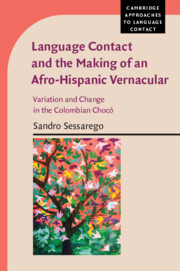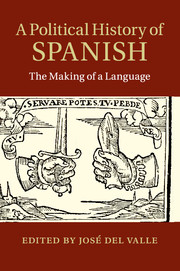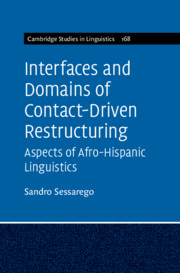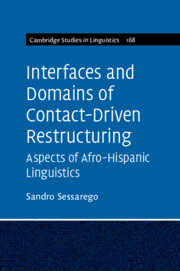Language Contact and the Making of an Afro-Hispanic Vernacular
Exploring creole studies from a linguistic, historical, and socio-cultural perspective, this study advances our knowledge of the subject by using a cohesive approach to provide new theoretical insights into language shift, language acquisition and language change. It compares the legal system regulating black slavery in Chocó, Colombia with the systems implemented by other European colonial powers in the Americas, to address questions such as what do Chocó Spanish linguistic features say about the nature of Afro-Hispanic vernaculars? What were the sociohistorical conditions in which Chocó Spanish formed? Was slavery in Chocó much different from slavery in other European colonies? Whilst primarily focused on Afro-Hispanic language varieties, Sessarego's findings and methodology can be easily applied and tested to other contact languages and settings, and used to address current debates on the origin of other black communities in the Americas and the languages they speak.
- Proposes a new, more cohesive and interdisciplinary approach to creole studies, providing a comprehensive picture of contact-driven restructuring phenomena
- Provides a new viewpoint on Afro-European language evolution
- Enables researchers to address current debates on the origin of a variety of black communities in the Americas and the languages they speak
Product details
June 2022Paperback
9781108724777
248 pages
228 × 151 × 14 mm
0.37kg
12 b/w illus. 5 maps 11 tables
Available
Table of Contents
- 1. Introduction
- 2. The place of Chocó Spanish in the Spanish creole debate
- 3. A sketch of Chocó Spanish
- 4. Roots of some languages
- 5. Black slavery in the Pacific lowlands of Colombia
- 6. Testing the legal hypothesis of Creole genesis on colonial Chocó
- 7. Final considerations.






